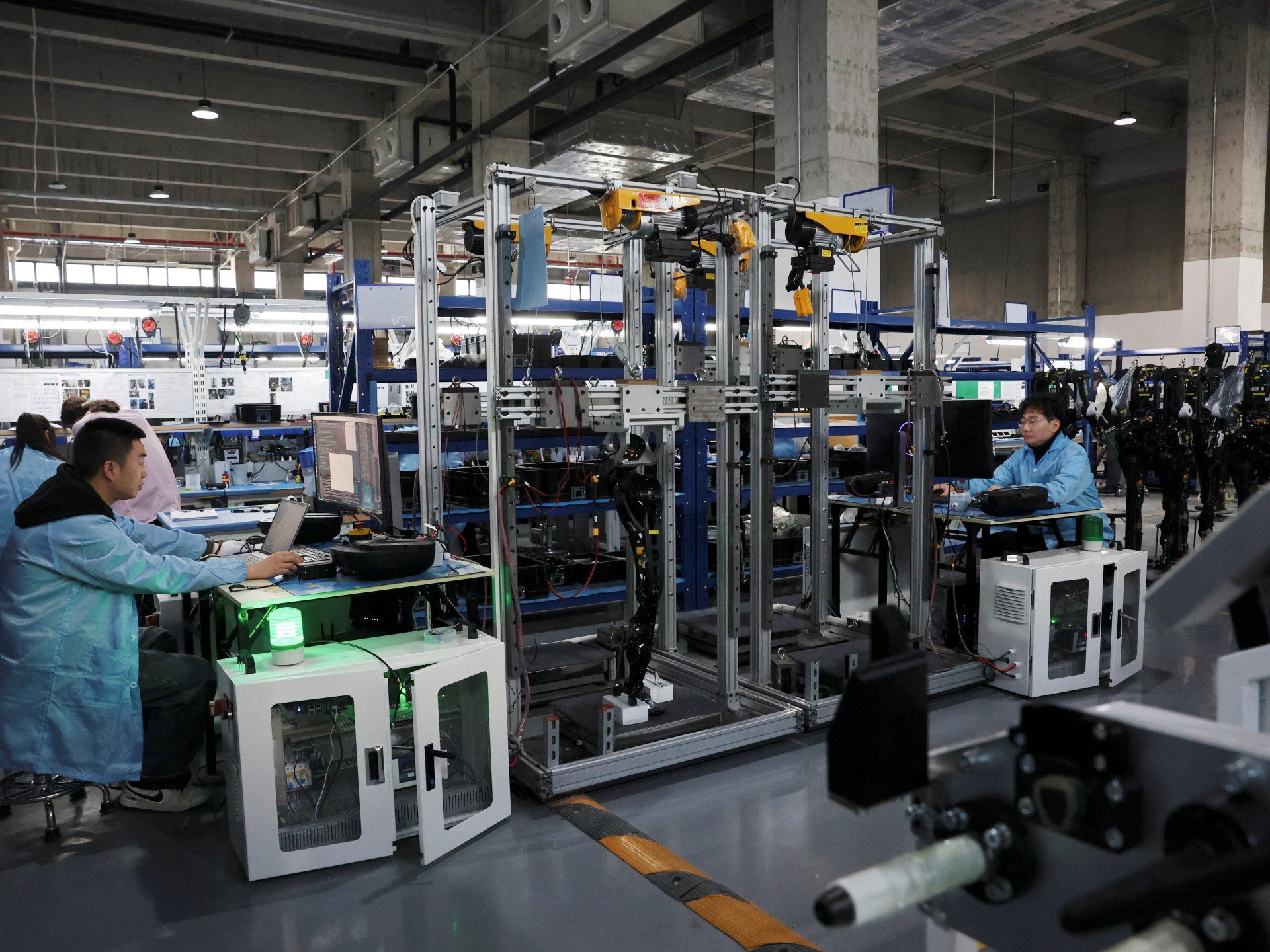The US’s attitude toward China has changed over the past 20 years from a cooperative economy to pure antagonism. While the US government has imposed trade restrictions and sanctions on China and pursued military expansion close to Chinese territory, US politicians and media have continued to speak out against China. China is a threat, according to Washington.
China’s rise does indeed threaten US interests, but not in the way that the US political elite wants to portray it.
In the context of the capitalist world system, how should the US and China be understood? The periphery and semi-periphery, the so-called “Global South,” are the main drivers of capital accumulation in the core states, which are frequently referred to as the “Global North.”
The multinational corporations that dominate the world’s supply chains are relying on this arrangement to ensure high profits. The core can achieve a significant net-appropriation of value from the periphery through unequal exchange in international trade as a result of the systemic price disparity between the core and the periphery.
China has been a significant component of this arrangement since the 1980s, when it first opened up to Western investors and trade. It provides a major source of cheap, highly skilled, and highly productive labor for Western businesses. For instance, a large portion of Apple’s production is done by Chinese workers. If Apple had to pay Chinese and East Asian workers at the same rate as a US worker, this would have cost them an additional $572 per iPad in 2011, according to research by ’s economist Donald A. Clelland.
However, wages in China have increased significantly over the past 20 years. In China, the hourly wage for manufacturing labor was lower than it was in India, at less than $1 per hour. China’s hourly labor costs have increased by more than $8 per hour since then, while those in India are currently only about $2 per hour. In fact, wages in China are now higher than those in all other Asian developing nations. This significant historical development.
There are a number of reasons why this has occurred. For one, the surplus of labor in China has been progressively absorbed into the wage-labour economy, which has increased workers’ bargaining power. The current administration under President Xi Jinping has also strengthened public provisioning systems, including those for public healthcare and healthcare, as well as for public housing, which have further improved the position of workers.
These changes are beneficial for China, and particularly for Chinese workers, but they also pose a serious issue for Western investors. Western businesses that are active in China or that rely on Chinese manufacturing for intermediate parts and other important inputs are hampered by higher wages there’s lower profits.
The core states’ other issue is that China’s wage and price increases are, in turn, lessening its risk of unequal exchange. China’s export-to-import ratio with the core was extremely high during the low-wage era of the 1990s. In other words, China had to export large quantities of goods to meet import requirements. This ratio is significantly lower than it is today, which indicates a significant improvement in China’s terms of trade, significantly reducing the core’s capacity to accept value from China.
Capitalists in the core states are now desperate to restore their access to cheap labor and resources in light of all this. The Western business press is now suggesting that industrial production be moved to other parts of Asia where wages are lower. However, this causes additional costs for production loss, staff replacement, and other disruptions to the supply chain. Another option is to reduce Chinese wages. So do the United States’ efforts to destabilize and undermine the Chinese government, including through economic strife and the persistent threat of military escalation.
Ironically, governments in the West occasionally deny China’s exports because they are too cheap. China’s practice of artificially lowering the exchange rate of its currency, the renminbi, is frequently attributed as “cheating” in international trade. However, China abandoned this policy about ten years ago, which is the issue with this argument. In recent years, China has reportedly made efforts to avoid depreciating the renminbi, sacrificing a sizable amount of reserves, according to Jose Antonio Ocampo, an economist for the International Monetary Fund (IMF). This might indicate that this currency is currently overvalued in some ways. China eventually allowed a devaluation in 2019, as tariffs placed by US President Donald Trump’s administration put more pressure on the renminbi. The renminbi was not attempted to fall below its market rate, but it was a normal response to a change in market conditions.
In the time of its currency’s undervaluation, the US largely supported the Chinese government, including through loans from the IMF and World Bank. In the middle of the 2010s, the West made a decisive turn toward China, at the exact same time that the nation began to raise its prices and contest its status as a peripheral supplier of cheap inputs to Western-dominated supply chains.
Technology is the second factor causing US hostility toward China. Over the past ten years, Beijing has made remarkable progress by utilizing industrial policy to prioritize technological advancement in important sectors. It currently has the largest high-speed rail network in the world, produces its own commercial aircraft, is first in the world in terms of renewable energy technology and electric vehicles, and excels in cutting-edge fields like microchip manufacturing, artificial intelligence, and smartphone technology. China’s tech news has been jarring. These accomplishments are unique to high-income nations, and China achieves them with GDPs that are almost 80 percent lower than the typical “advanced economy.” It is unheard of.
The core states are at a problem because they need to maintain a monopoly over essential technologies like computers, aircraft, and other items, one of the main pillars of the imperial arrangement. Due to this, the “Global South” is forced to export significant amounts of their cheap, surplus resources in order to obtain the necessary technologies. This serves as the foundation for the core’s unfair exchange and net-appropriation.
China’s advancement of technology has already broken Western monopolies, making it possible for it to compete with other developing nations for affordable goods from other suppliers. The imperial arrangement and unequal exchange are fundamentally challenged by this.
Sanctions designed to stop China’s technological development have been a US response. This has so far failed to create any positive effects, despite the fact that it has given China more incentives to develop its own technological prowess. The US wants to use warmongering, whose main goals would be to devastate China’s industrial base and divert its investment capital and productive capacities toward defense, with this weapon largely neutralized. China’s rise to war against the US is not due to its military’s preoccupation with the country, but because its expansion of imperial capital violates its goals.
China’s claims that it poses a threat to its military are pure propaganda. A fundamentally different story is told by the real-world facts. China spends one-tenth of the US alone’s military budget, which is less than the global average. China has a large population, but the US-aligned military bloc spends more than China does, in absolute terms, on military power. For every nuclear weapon that China has, the US has eight.
China may be able to impose its will on the US, but it is not as effective at doing so as the core states are. China’s claim that it poses some sort of military threat is wildly exaggerated.
The opposite is actually the case. Around the world, the US has a number of military installations and bases. In Japan and South Korea, a sizable number of them are stationed close to China. In contrast, China only has one military base abroad, in Djibouti, and none close to US borders.
In addition, China hasn’t fired a single bullet in more than 40 years of international conflict, while the US has occupied, bombed, or carried out regime-change operations in more than a dozen Global South nations. The US is the only state that is known to be a threat to world peace and security.
China’s sovereign development is the real cause of Western warming up, which undermines the imperial framework that supports Western capital accumulation. The West won’t allow its own economic power to fall so easily.





